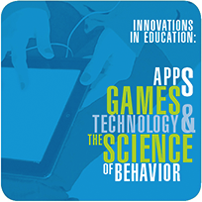
Interteaching: Applying Our Science and Using Data-Based Decisions in Teaching
Darlene E. Crone-Todd, Ph.D. (Salem State University)p>

Dr. Darlene Crone-Todd is an associate professor of psychology at Salem State University, and serves as the coordinator for the post-master’s certificate program in applied behavior analysis. She earned her Ph.D. in experimental behavior analysis at the University of Manitoba, Canada, and completed her post-doctoral work at the Johns Hopkins University School of Medicine in behavioral pharmacology. Dr. Crone-Todd is the lead editor for the Behavior Analyst Today, the executive director for the Society for the Quantitative Analyses of Behavior, and serves as a board member and representative for experimental behavior analysis on the Massachusetts Association for Behavior Analysis. Her applied work in this area concerns using behavioral methods to increase higher-order thinking in higher education. She has published, and presented, on the use of the Computer-Aided Personalized System of Instruction (CAPSI), as well as on the use of Interteaching methods in the classroom. She is passionate about the area of applying behavioral principles to provide quality educational experiences, having been exposed to a variety of different educational settings in her early years.
Abstract: Behavior analysis has contributed in a meaningful way to the development of higher-order thinking skills at all levels of education during the past decades. The use of small units of study, requiring that students prepare for lectures and discussions, monitoring student performance, and providing and responding to feedback, are all critical features of an approach called Interteaching. Developed by Boyce & Hineline, and expanded by Saville, this approach to teaching has been studied extensively during the past decade, and continues to gain traction as a method to promote student engagement, including prereading of the material and on-task class discussion. In this session, research on Interteaching will be reviewed, along with practical strategies for use in the classroom and ideas for research projects. The goal is to provide participants with practical strategies for use in various classroom settings, and to discuss how Interteaching might be adopted for online use.
Back to Previous Page